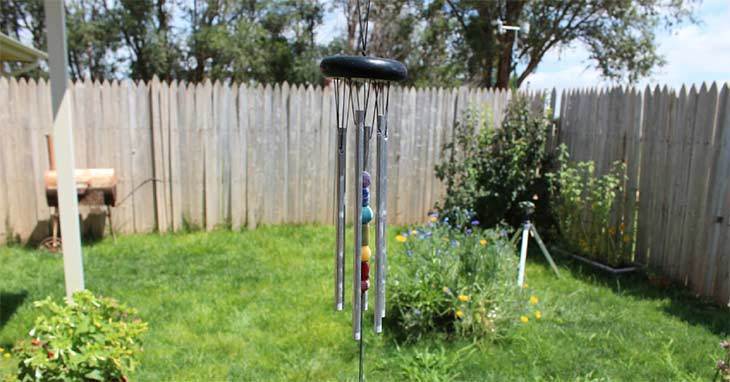
Keep Birds from Eating Grass Seed by windchime
Growing new grass can be a finicky task. Sometimes, it takes forever to germinate. You might water too much, or birds might eat the seeds. When all of your seeds are disappearing, you might wonder how to keep birds from eating grass seed.
Birds can pick away at a sowed lawn in a short time. Before your lovely seeds fully sprout, birds will kill your new lawn. Unless you want to spend your entire summer trying to plant multiple batches of grass, there are a few tricks to keep the birds away.
Why Are Birds Eating My Grass Seeds
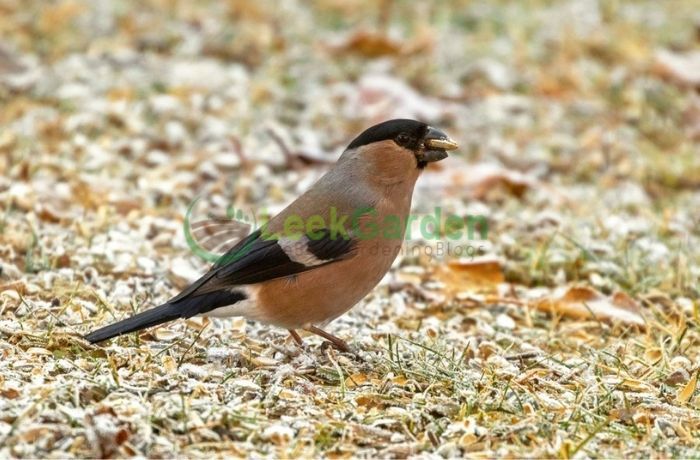
Why are birds eating my grass seeds
It's important to understand why birds consume grass seeds before taking steps to prevent them from doing so. Granivorous birds make up the majority of the visitors to your garden. Sparrows, finches, buntings, pigeons, and even parakeets are among the seed-eating birds to keep an eye out for.
Late summer through mid-autumn are the best times to sow grass seeds. Birds should be able to feast on a variety of wild seeds and berries at this time of year. So, why do birds flock to your newly planted grass when there's so much food accessible to them?
The reason is simple: the seeds are spread out like an appealing smorgasbord and are easy to get to. Not eating the grass seeds, in the eyes of birds, is akin to refusing to eat anything at a lavish dinner party. To put it another way, that's impolite.
Nobody enjoys seeing their newly sowed grass vanish because the birds ate all of the seeds. At the very least, you now understand why they do what they do.
So, with that in mind, let's see how can you keep birds from eating grass seeds
Things You Will Need Consider to Keep Birds from Eating Grass Seed
- Straw – one bale covers around 1,000 square feet of space!
- Rake.
- Burlap Sheets.
- Wire U Pins.
- Mylar Tape.
- Posts.
- Rubber snakes.
- Pinwheels.
- Plastic owls.
- Aluminum pans.
- Tin cans.
- Old CDs.
- Noise making ducks.
- Helium balloons.
- Bird Feeders.
- Bird Seed.
Read more: So You Got Best Crabgrass Killer? Our Top Guide To Getting The Most Crabgrass Killer.
Ways To Keep Birds From Eating Grass Seed
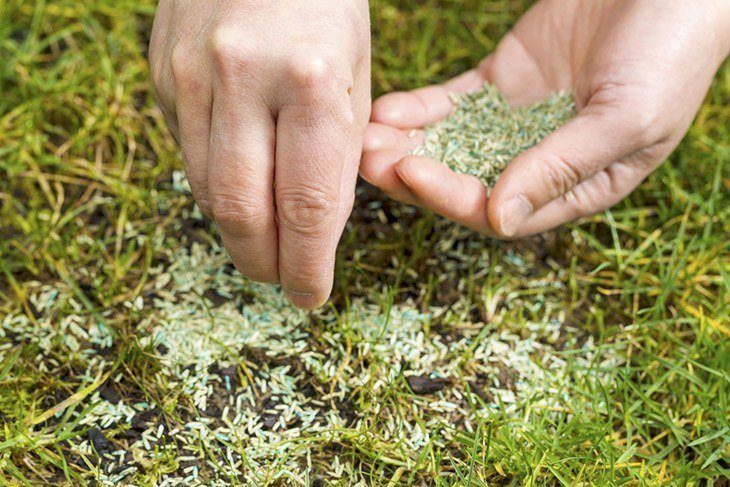
Hand holding palmful of grass seeds
1. Straw
One of the most common methods to stopping birds is simply laying a thin layer of straw on top of the newly planted seeds. You want to it to cover about 75% of the seeds. You only keep the straw on top of the seeds until they germinate. At this point, you should gently remove the straw with a rake or by hand. Sprouts need sunlight to grow, so the straw must be removed.
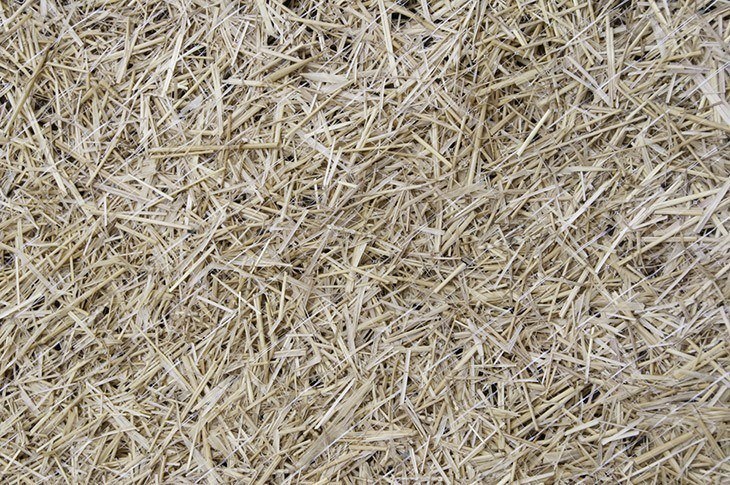
Straw covering grass seed to germinate
2. Burlap Sheets
Another method for covering up grass seed is to use burlap sheets. Burlap allows water heat and sunlight to reach the soil beneath, encouraging germination. You might select burlap if you live in an area that receives a lot of wind.
Straw tends to blow away easily, leaving the grass uncovered. If you want to use burlap, simply lay sheets over the top of the seeds gently. Then, use wire U pins to anchor down the burlap. After germination, remove the burlap.
3. Try Mylar Tape
Some homeowners use metallic Mylar tape because it moves and flashes in the sunlight. As it moves, it also creates a noise that will deter birds. Together, the combination frightens all of the birds away.To use the Mylar tape, you need to put in a few tall posts around the area.
Typically, they are three feet tall. You want to put the poles around six to seven feet apart. Tie the Mylar tape between each pole, but make sure you don’t tie it too tightly. You want the strands to move freely in the wind so it can flash and make noise.
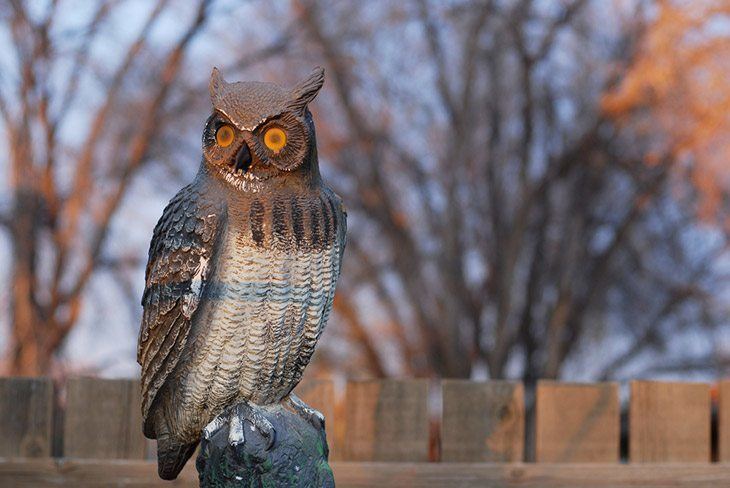
Plastic owl meant to deter birds
4. Scare Them Away
Birds are scared away easily. You probably know that if you have walked close enough to birds, they fly away in an instant. Take advantage of their personality. Whatever option you pick, it is important that you move the objects around at least a few times a week. Birds are intelligent, and they will soon realize they are decoys otherwise.
Read more:
- Best Sprinkler Heads 2019 Buying Guide (Updated)
- Metal Garden Hose Reviews, 2019 (Proven Tips)
5. Make Noise
Birds typically prefer quiet areas. This is why you will notice a flock in your backyard early in the morning before the kids plow outside. Once the kids are outsid Best Crabgrass Killer: Top Picks for Better Lawne making noise, birds tend to stay away. Take advantage of this and use noise devices to deter birds as often as possible.
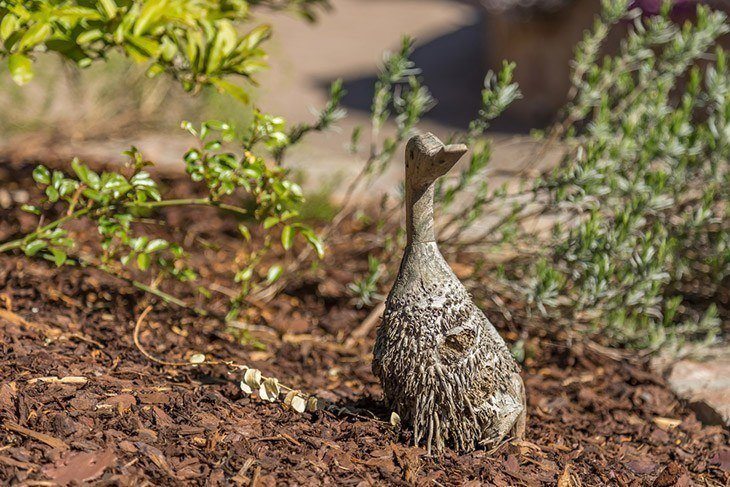
Wooden duck decoy to deter birds
Tips: Ultimate Fertilizer Spreader Buying Guide: How to Choose the Best Fertilizer Spreader
6. Bird Feeder
At first glance, it may seem to be a strange idea. A bird feeder in your yard deters birds from consuming grass seeds. A bird feeder makes it more simpler for wild birds to eat than to drop seeds on the ground. This helps them feel safer since they can keep a closer look out for potential predators with all of their food conveniently located in one high area.
Maintaining a well-stocked bird feeder and providing birds with nutritional and healthful snacks are the keys to a successful feeder. Suet, mealworms and sunflower seeds beat out grass seeds, peanuts and fruit any day. In the course of their search for food, wild birds use a considerable amount of energy each day.
If the birds in your yard are well-fed, the grass seeds scattered throughout the lawn will not be worth their attention.
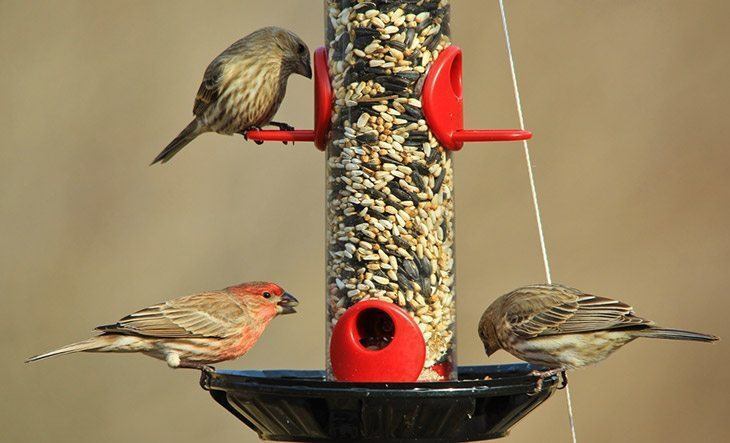
Three finches on birdfeeder
7. Distract Them
Sometimes, the birds are persistent, and you might get frustrated with constantly trying to deter them. If worse comes the worse, one of the best methods of keeping birds from eating grass seeds is to give them something else to do. Hang up a few bird feeders on the opposite side of your lawn. Birds are attracted to bird feeders. They also love bird baths!
8. Repellent Net
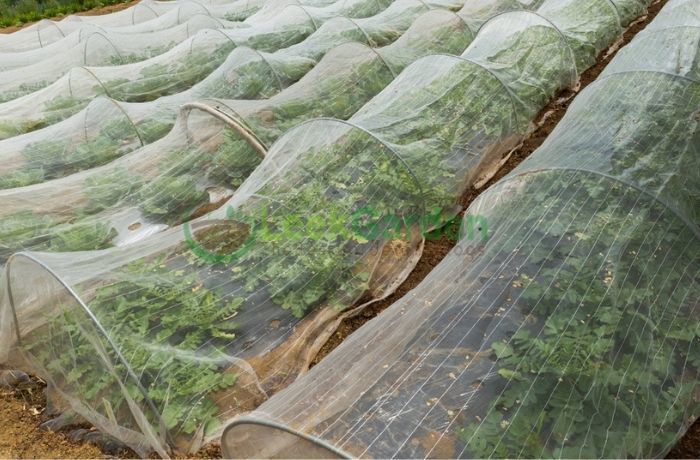
Repellent net Keep Birds from Eating Grass Seed
Repellant netting made of polyurethane is thin and light. Mold and mildew are not a problem since they are non-conductive. Furthermore, they won't ingest any of the poisons or pesticides you apply to your crops.
The seed wraps are very thin and light. They may be placed immediately on top of the seeds. In order to keep the birds from pecking at your seeds, you should elevate the net a few inches above the surface of the soil. You must, however, use the pile of stones to bind the netting's outside borders.
8. Lay Down Mulch
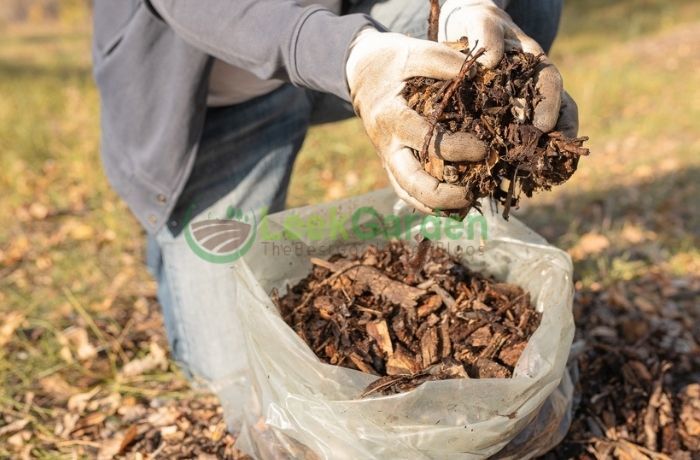
Lay down mulch over grass
Mulch not only helps keep the soil wet, but it also limits the growth and proliferation of weeds. In this way, you can be confident that your grass seeds will germinate to their fullest potential.
In addition, as previously mentioned, it may be quite effective against pecking birds.
Make sure that the straw mulch you purchase is certified and weed-free. The majority of landscaping retailers carry it. You may cover up to 75% of the soil with thin layers of hay or straw before sowing your grass seeds.
In order to protect itself from the pecking birds, your grass seed will not need any further protection. Once the grass seeds have germinated, just remove the straw with care.
Via Youtube.com: How to Keep Birds from Eating Grass Seed
People also ask:
Are there any grass seeds that birds won’t eat?
It's impossible to find a kind of grass that birds won't eat. All grass seeds are equally enticing to birds, from ryegrass to fescue. A bird repellent coating is the sole thing keeping them away from grass seeds.
How do I keep birds from eating my grass seed?
- Straw
- Burlap Sheets
- Try Mylar Tape
- Scare Them Away
- Make Noise
- Distract Them
- Lay Down Mulch
- Repellent Net
Will birds eat coated grass seed?
Because they have been coated, the seeds of the grass are more likely to birds don't feel any taste and don't think it's food. As a result, coated grass seeds may deter birds from consuming your grass seeds.
Do sparrows eat grass seed?
Yes! Because sparrows have delicate beaks, they can readily pick up little seeds and feed on them.
Will birds eat all the grass seed?
Conclusion
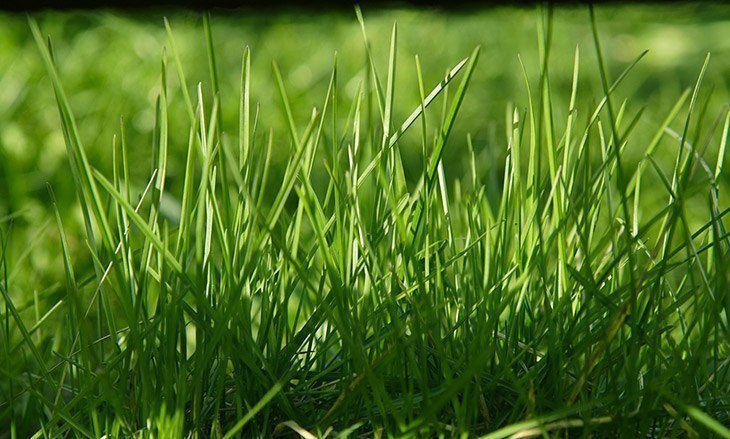

Focus on green, full grass
Birds naturally love grass seed. There is little you can do to stop the love affair. Once you lay down grass seed, it is you against the whole population of birds. The best method is to try to lay something over the top to stop them from eating the grass seed before germination.
Once germination occurs, your sprouts are still delicate. Try using decoy methods, such as rubber snakes and tin cans, to stop the birds from visiting your lawn. Learning how to keep birds from eating grass seed is truly just a trial and error process to see what works best for the birds in your area!
Like this post?
Let us know what you think by leaving a comment below. Share it with your friends, too!

